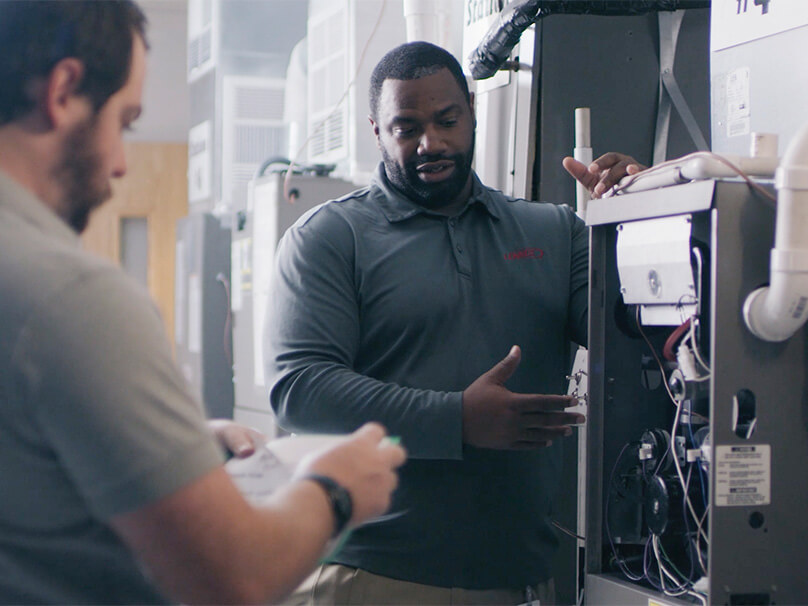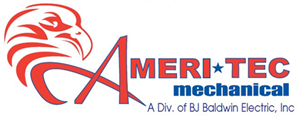Switching on your old furnace after several months of keeping it off might seem like a risk. Will it start without a problem and function smoothly the entire season? Or will it fail all of a sudden on the day a blizzard rolls in?
Furnace installation in Narvon, Pennsylvania, is easy when you contact the heating and cooling experts at Ameri-Tec. We offer a variety of options to satisfy your comfort and budget needs, like energy-efficient and high-efficiency furnaces that will help keep utility costs down.
Contact us at 717-479-4950 today to get started with replacing your furnace.

Is It Better to Repair or Replace My Furnace?

While no one can predict just when your furnace will break down, there are some warning signs that the furnace has to be replaced.
Furnace Age
Heaters usually last between 12–17 years. If a furnace is 15 years old (or older), it has a higher possibility of failing. You should start the process for replacement by comparing new furnaces ahead of time.
Continual Repairs
You should opt for HVAC installation if a furnace needs repairs more consistently.
Increased Energy Bills
Older furnaces are not as efficient. If yours hasn’t undergone routine furnace maintenance, you risk losing further furnace efficiency and dealing with steeper energy costs.
Weak Heating
An older HVAC system can do a poor job at heating your home. Leaky ductwork and a clogged furnace filter can also cause issues.
Three Benefits of a New Furnace
While furnace installation sounds intimidating, new furnaces include new features worn down systems can’t compete with. In addition, you can sit back and relax knowing you don’t need to replace your system for the immediate future.
A new furnace can offer:

1. Improved Efficiency
New furnaces are very reliable and provide much better efficiency ratings compared to models from 20 years ago.
2. Less Noise During Operation
A new furnace offers the latest in quiet operation technology. You may not even notice when it starts running.


3. Peace of Mind
Innovative HVAC technology ensures your heating will last longer and run with better energy efficiency. With one of our service agreements, you’ll never lose out on an important furnace tune-up again.
Furnace Replacement You Can Depend On
You can trust we won’t forget anything—from keeping your home clean throughout installation to running final checks on your new furnace. We’re happy to walk you through the process and see to it that you understand maintenance expectations.
Our certified pros are fully licensed and insured, so you won’t have to worry about anything during the HVAC installation process. We’ll make sure everything is running properly and check for leaks in the air ducts.
Give us a call at 717-479-4950 or request an appointment online to get started with your furnace installation today. Our team will show you how to find the best furnace for your home and install it right away.
